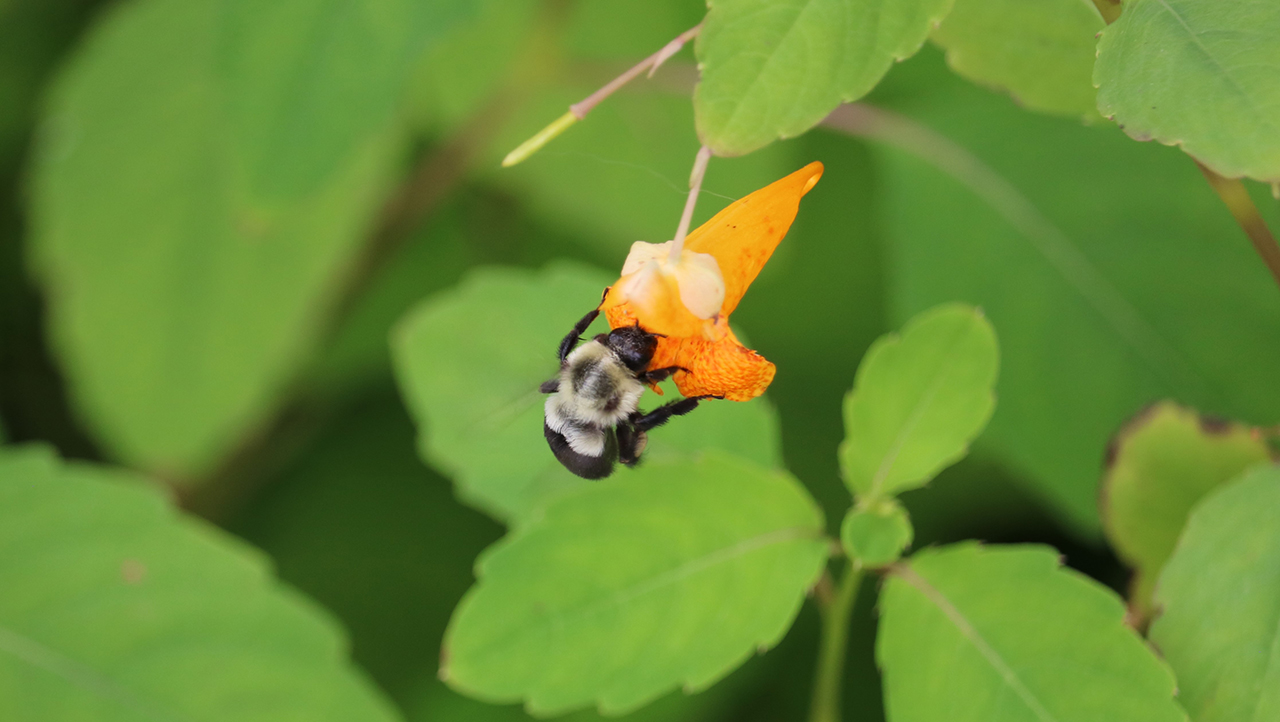Public invited to free training for Michigan Bumble Bee Atlas Program

The Michigan Bumble Bee Atlas Program is asking for the public’s help to track bumble bees as part of a statewide community science project.
To get involved in the bumble bee conservation effort and become a volunteer, attend a free training session from 2 to 4 p.m. Tuesday, June 18, at the Mathematics and Science Center Room 133 on the campus of Oakland University. No experience required and the event is free.
Oakland University Associate Professor of Biological Sciences Mary A. Jamieson and Danielle Dorsen, a Ph.D. candidate at Oakland, will lead the Michigan Bumble Bee Atlas Program training.
“By participating as a community scientist for the Michigan Bumble Bee Atlas volunteers can help inform bumble bee conservation efforts by monitoring species across the state,” Dorsen said. “Continued monitoring of bumble bees in Michigan is critical as a number of species are of conservation concern, such as the newly state listed American Bumble Bee.
“This event is a great way for attendees to receive hands-on training to properly follow the Michigan Bumble Bee Atlas monitoring protocol. It will also be beneficial for individuals who have never monitored bees before to learn how to do so safely.”
Participants will get the opportunity to kickstart their involvement in the Michigan Bumble Bee Atlas community science program, meet other bumble bee enthusiasts, improve their bumble bee ID skills and learn bumble bee monitoring protocols.
Attendees can park in any Oakland University lot. The indoor programming will take place in the Math and Science center. Following the indoor portion, attendees will walk together to the OU Biological Preserve. Field attire (long pants, long socks and gym shoes) is highly recommended.
The Michigan Bumble Bee Atlas (MBBA) was developed by the Michigan Natural Features Inventory (MNFI) and Michigan State University Extension (MSUE) to inform a broader understanding of bumble bee biology, diversity and population trends for species of bumble bees in Michigan.
The MBBA is a statewide community science project where participants are encouraged to actively collect bumble bee occurrence data and associated habitat data to inform bumble bee conservation across the state.

 June 14, 2024
June 14, 2024







